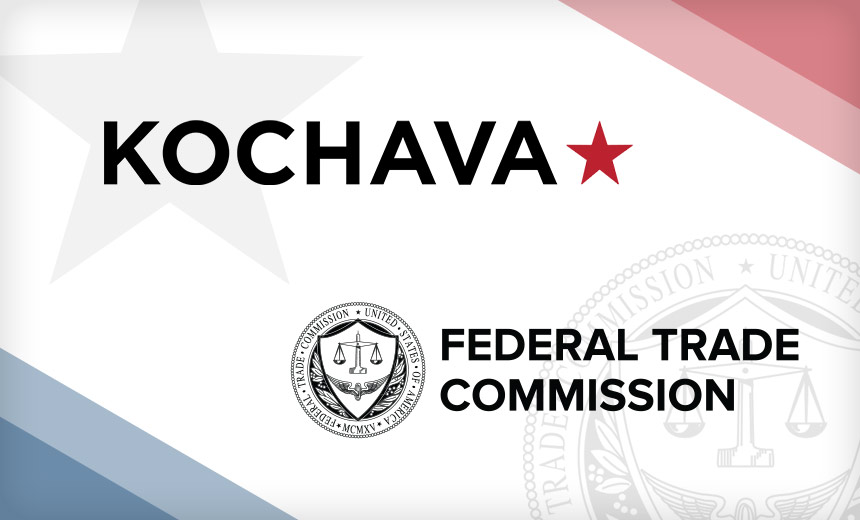Data is choking AI. Here’s how to break free.

As enterprises deepen their embrace of AI and other data-driven, high-performance computing, it’s critical to ensure that performance and value are not starved by underperforming processing, storage and networking. Here are key considerations to keep in mind. Compute. When developing and deploying AI, it’s crucial to look at computational requirements for the entire data lifecycle: starting with data prep and processing (getting the data ready for AI training), then during AI model building, training, and inference. Selecting the right compute infrastructure (or platform) for the end-to-end lifecycle and optimizing for performance has a direct impact on the TCO and hence ROI for AI projects. End-to-end data science workflows on GPUs can be up to 50x faster than on CPUs. To keep GPUs busy, data must be moved into processor memory as quickly as possible. Depending on the workload, optimizing an application to run on a GPU, with I/O accelerated in and out of memory, helps achieve top speeds and maximize processor utilization.
New leadership for a new era of thriving organizations
Leading companies today seek to become learning organizations that are continually evolving, exploring, ideating, experimenting, scaling up, executing, scaling down, and exiting across many different activities in parallel. By accelerating change and allowing for positive surprises and innovations to flourish, they consistently outperform those companies that focus instead on always trying to deliver the “perfect” plan. We are in the midst of a profound shift in how work gets done, one that asks leaders to go beyond being controllers with a mindset of certainty to becoming coaches who operate with a mindset of discovery and foster continual rapid exploration, execution, and learning. Leaders and leadership teams can learn how to set and work toward outcomes rather than traditional key performance indicators; to foster rapid experimentation and learn from both successes and setbacks; and to manage risk differently, through testing, learning, and fast adaptation. The leadership practices enabling this shift include the following:operating in short cycles of decision, action, and learning.
The Fourth Industrial Revolution is here. Here’s what it means for the way we work

Herein lies the double-edged sword of the Fourth Industrial Revolution. Although
smart machines and artificial intelligence are predicted to bring unimaginable
efficiencies, they will do so by increasingly replacing a wide swath of existing
human jobs. While historically jobs have always been around for human beings
through technological revolutions, we have never had a technological revolution
that has been capable of displacing so many human beings and so much human brain
power as the one we are transitioning through now. According to a report from
Oxford Economics, a global forecasting and quantitative analysis firm, smart
machines are expected to displace about 20 million manufacturing jobs across the
world over the next decade, including more than 1.5 million in the U.S. Other
studies predict that smart machines, robotics, artificial intelligence,
blockchain technology, 3D printing, and automation will put 20% to 40% of
existing jobs at risk over the next decades. And a report from the Brookings
Institution finds that 25% of U.S. workers will face “high exposure” and risk
being displaced over the upcoming few decades.
Even Amazon can't make sense of serverless or microservices
Beyond celebrating their good sense, I think there's a bigger point here that
applies to our entire industry. Here's the telling bit: "We designed our initial
solution as a distributed system using serverless components... In theory, this
would allow us to scale each service component independently. However, the way
we used some components caused us to hit a hard scaling limit at around 5% of
the expected load." That really sums up so much of the microservices craze that
was tearing through the tech industry for a while: IN THEORY. Now the real-world
results of all this theory are finally in, and it's clear that in practice,
microservices pose perhaps the biggest siren song for needlessly complicating
your system. And serverless only makes it worse. What makes this story unique is
that Amazon was the original poster child for service-oriented architectures.
The far more reasonable prior to microservices. An organizational pattern for
dealing with intra-company communication at crazy scale when API calls beat
scheduling coordination meetings. SOA makes perfect sense at the scale of
Amazon.
The impact of ChatGPT on multi-factor authentication

As adoption of AI/ML-backed tools continues to grow, it will be important to
focus on key ways to mitigate the risks associated with their use. When the
efficacy of identity measures that companies have trusted for decades such as
voice verification and video verification erodes, strongly linked electronic
identity is even more important. Phishing-resistant credential solutions such as
security keys — that are hardware-backed and purpose-built around cryptographic
principles — excel in these scenarios. Security keys that support FIDO2 also
ensure that these credentials are tied to a specific relying party. This binding
prevents attackers from preying on simple human error. With security keys,
credentials are securely stored in hardware which prevents those credentials
from being transferred to another system without the user’s knowledge or by
accident. The use of FIDO2 authenticators also greatly reduces the efficacy of
social engineering through phishing as users cannot be tricked into vending a
one-time password to an attacker, or have SMS authentication codes stolen
directly through a SIM swapping attack.
Three Powerful Tactics Entrepreneurs Use For Instant Confidence
Tried and tested by entrepreneurs who have faced nerves and self-doubt,
reminding yourself of what you have already achieved can give your confidence
levels the boost they need. Create a metaphorical cookie jar of all your
business and life wins and dip in for instant assurance. Samantha from ICI CARE
keeps a list of her past wins and her big picture vision on the wall where she
works, ensuring they are at eye level. "By having that reminder, I win over my
brain before it spirals down,” she said. “Self-doubt is normal but I keep my
focus and energy on achievement.” ... Confidence is a state of mind, which means
it’s also a choice. Dr Amanda Foo-Ryland, founder of Your Life Live It, knows
this well, explaining that it’s also, “about how you choose to see a new
situation.” She knows, “I can either be confident or choose not to be.” Like
Sarceno, she incorporates visualisation into the way ahead. “If I choose to be
confident, I imagine the event and see myself in it being confident, being the
person I want to be. I observe myself in the movie in my head.”
White House unveils AI rules to address safety and privacy

This new effort builds on previous attempts by the Biden administration to
promote some form of responsible innovation, but to date Congress has not
advanced any laws that would rein in AI. In October, the administration unveiled
a blueprint for a so-called “AI Bill of Rights” as well as an AI Risk Management
Framework; more recently, it has pushed for a roadmap for standing up a National
AI Research Resource. The measures don’t have any legal teeth; they are just
more guidance, studies and research "and they’re not what we need now,"
according to Avivah Litan, a vice president and distinguished analyst at Gartner
Research. “We need clear guidelines on development of safe, fair and responsible
AI from the US regulators,” she said. “We need meaningful regulations such as we
see being developed in the EU with the AI Act. ... US regulators need to step up
their game and pace." In March, Senate Majority Leader Chuck Schumer, D-NY,
announced plans for rules around generative AI as ChatGPT surged in popularity.
Schumer called for increased transparency and accountability involving AI
technologies.
Court Dismisses FTC Complaint Against Data Broker Kochava

The FTC in its lawsuit filed last August against Idaho-based Kochava said the
company invades consumers' privacy by selling advertisers geolocation data sets
of mobile phone holders tied to a unique ID. That information could be used to
identify individuals who have visited abortion clinics, mental health providers
and other sensitive locations, the agency said. Kochava filed its own lawsuit in
the same Idaho federal court weeks before the FTC's action, as a bid to
preemptively counter the federal agency. The company also filed a motion last
October to dismiss the FTC's lawsuit. Winmill wrote in her Thursday ruling that
nothing prevents the FTC from asserting that an invasion of privacy by itself
can constitute a legitimate cause for suing. The agency failed, he said, by not
establishing that Kochava's business practices constitute substantial injury to
consumers. "The privacy concerns raised by the FTC are certainly legitimate.
Disclosing where a person has been every fifteen-minutes over a seven-day period
could undoubtedly reveal information that the person would consider private,
such as their travel habits, medical conditions, and social or religious
affiliations," he wrote.
The Merck appeal: cyber insurance and the definition of war

The war exclusion was found to be not applicable, and the court used the
insurer’s own words to detail the “why” behind the denial. When read by a layman
such as me, it appears the judges believed the insurers had ample time to adjust
their policy dynamics and didn’t get around to it. ... That said, when a
nation’s intelligence entities run covert operations, which Russia does on a
regular basis, the goal of the government at hand is to always maintain
plausible deniability any illegal acts. Could the NotPetya attack have been
sponsored by the Russian Federation? Absolutely, and indeed, Kroll Cyber
Security, the cyber consultant for the insurers, opined before the court “with
high confidence” that the attack was “orchestrated by actors working for or on
behalf of the Russian Federation.” Yet, one should note that when the US
Department of Justice had the opportunity to pin the tail on that same donkey,
they demurred. Thus, if a national government is not going to attribute
nation-state sponsorship to an attack, then it will be most difficult for an
insurance entity to successfully do so within the courts without explicit
verbiage in the cybersecurity exclusions.
How the influence of data and the metaverse will revolutionize businesses and industries
From machine and building performance to energy and emissions, data is the
crucial link between the physical and digital worlds. It’s also the key to
solving efficiency and sustainability challenges that are now more urgent than
ever. If the metaverse is meant to transform business and industries, it must be
built on solid data foundations. ... Digital transformation started with
connecting physical assets via IoT and edge controls. Its disruptive potential
has proven to carry operational and energy efficiency across all levels of an
enterprise. When we introduce powerful software capabilities and start
leveraging the generated data, we can create virtual representations of the
real world by combining simulation, augmented reality (AR), data sharing, and
visualization all at once. ... It seems that all these and many more possible
applications have something in common: they are all about bringing together
technologies to address challenges of the physical world, by giving real people
the means to learn, collaborate, act, and essentially create value through a
virtual, digitally augmented space.
Quote for the day:
"You always believe in other people.
But that's easy. Sooner or later you have to believe in yourself." --
Gary, The Muppets
No comments:
Post a Comment